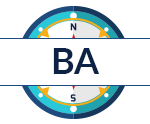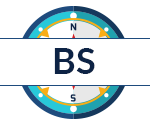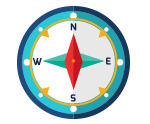Science, Technology, Engineering & Math
Chemistry | Chemistry & Forensic Chemistry | Computer Science | Data Science | Mathematics |Physics Engineering: | Biomedical | Chemical | Civil | Computer | Electrical | Industrial and Systems | Mechanical | Ocean
What Can I Do With My Major?
One of the most exciting things about your major is the variety of career options you can pursue! Take a look at the materials below to learn about some of the most common career paths for your major. To access the What Can I Do With This Major website, click on the link below.
Explore these infographics that feature an overview, areas of opportunity, common employers, professional organizations, and strategies on entering the field for the STEM majors here at URI.
Science, Technology, Engineering & Math:
![]() = Career paths for this major
= Career paths for this major ![]() = Careers of URI Alumni for this major
= Careers of URI Alumni for this major
Engineering
Resources
Click on the links below to connect to websites that provide additional information specifically related to STEM careers! (Information sourced from NCDA.)
STEM-Related Student Groups:
Getting involved with student groups here on campus is a great way to network with your peers, build professional skills, enhance your leadership abilities, learn more about your target career field, and have fun! Below is a list of some STEM-specific student organizations that you can join.
- Society for Women in Computing
- RAM Hacks
- Seeds of Success
- Undergraduate Research Society
- URI Pre-PA Club
- Physician Assistant Club
- Alpha Chi Sigma – Coeducational Professional Chemistry Fraternity
- Tau Beta Pi – The Engineering Honor Society
- ASME URI – American Society of Mechanical Engineers
- URI EMBS – Engineering in Medicine and Biology Society
- SWE URI – Society of Women Engineers
- AIChE URI – American Institute of Chemical Engineers
- NSBE URI – National Society of Black Engineers
- URI ASCE – American Society of Civil Engineers
- SHPE URI – Society of Hispanic Professional Engineers
- Theta Tau – Co-ed Professional Engineering Fraternity
- AEA URI – Asian Engineering Association
Training & Additional Education
Some roles within STEM fields and industries require additional education beyond a Bachelor’s level degree. Graduate school requirements vary based on each program and commonly accept all undergraduate majors.
We encourage you to review our Grad School Module below to learn if grad school is the best fit for you.
Please note that your Career Education Specialists will assist you in finding resources for applying to grad schools (including building an effective personal statement), but do not advise on specific graduate programs. If you are interested in learning more about a specific program, contact that school’s graduate admissions office directly.
Professional and Technical Skill Development
In STEM fields, it is critical to continue to build and cultivate your skills throughout your career. Review these sites and related resources to identify how you can learn new skills, technologies, and strategies to help you advance throughout your career. (source: CIO.com)
Alison: Offers many free courses in engineering, computer science, data science, chemistry, physics, and mathematics. IT offerings include courses in networking and security, hardware, software development, software tools, IT management, mobile apps, software engineering, game development, data science, databases and core IT skills. The site offers certificate and diploma (more comprehensive) courses.
Codecademy: Offers free interactive lessons and opportunities to practice coding classes in many programming and markup languages, including Python, Ruby, Java, JavaScript, jQuery, React.js, AngularJS, HTML, Sass and CSS. You can also sign-up for a paid program that features more opportunities to practice and apply the skills that you learn.
Coursera: Offers free and cost-based training/courses, certificates, and degree programs in areas including engineering, computer science, data science, chemistry, physics, and mathematics including a good selection of free computer programming courses. You can take courses on the fundamentals of programming and choose from a long list of programming languages to learn such as Python, C and Java.
General Assembly: This is a for-profit education organization, but they also offer a free course that promises to teach students the basics of web development. The Dash program focuses on teaching you how to use HTML, CSS, and JavaScript.
edX: edX is a massive open online course (MOOC) provider with university-level courses developed by schools, nonprofit organizations, and corporations. Programs are offered for free to users, with courses from universities such as MIT and Harvard. Courses include short videos, interactive learning exercises, tutorial videos, online textbooks and a forum where students can interact with one another, ask questions and reach out to teaching assistants. At the end of your course, you’ll receive a certificate and some courses might count as college or university credits, depending on the school.
Udacity: Offers courses and nanodegree certifications in programming and development, artificial intelligence, cloud computing, business, data science and autonomous systems. Some programs are free, while others have a cost.
Skillshare: Offers free courses in UI and UX design as well as web development, and it also offers courses in business analytics, which may be useful for those working with data. The site features both free and cost-based offerings.
Khan Academy: Offers free training and programs for engineering,computer science, data science, chemistry, physics, and mathematics. Lessons are taught through YouTube videos, with additional exercises online for educators and students.
Microsoft Learn: Offers several free and cost-based learning paths and certifications that cover various Microsoft products and services. Learning paths contain several modules that are relevant to the course topic and certifications are more focused, with one or two exams required to earn the certification. Self-paced courses and exams are free through Microsoft, but if you want to take an instructor-led course you can do so through Microsoft Certified Trainers.
Udemy: Targeted at professional adults who need to fit education into their busy work schedules and features over 100,000 free or cost-based (many are inexpensive) online video courses, many of which relate to engineering, computer science, data science, chemistry, physics, and math.
Valuable Alternatives Options to Consider:
The following programs provide additional experiences related to building professional and transferable skills.
Searching for a Job/Internship
In order to be competitive for the job market or graduate school, prior to graduation every student should complete a practical experience, such as an internship. There are many techniques for searching for an internship! Many of your questions regarding how to search for a job or internship can be answered by reviewing the module and videos below.
Importance of LinkedIn as a Career Tool
LinkedIn is the world’s largest online professional networking platform that features resources and benefits to support professionals in all career fields. It’s important to build your LinkedIn profile now, start connecting with your peers and professional in your field(s) of interest, and conduct research for both internship/job search and overall career development!
Internship and Job Search Industry-Specific Websites and Resources
There are a variety of websites you can use to search for jobs, internships and research opportunities. The following is a selection of some of the search sites focused on careers in STEM.
- Handshake
- EngineerJobs.com
- EngineeringJobs.net
- Engineering.com/Jobs
- USA Jobs
- Math Jobs
- Physics Jobs
- Chemistry Jobs
- Pathways to Science
- Science and Technology Jobs
- ComputerJobs.com
- Dice
- AMGEN Scholars Program
- DORIS Duke Conservation Scholars Program (UC Santa Cruz)
- Mystic Aquarium Research Experiences for Undergraduates (REU)
- National Institutes of Health (NIH): Postbacalaureate Intramural Research Training Award (POST BAC)
- National Science Foundation (NSF) research Experiences for Undergraduates (REU)
- ITJobsWeb.com
- Women in Technology International
- ScienceJobs.org
- Science Careers Jobs
- Medical Lab Science Jobs
- State of Rhode Island Government Jobs
- Rhode Island Department of Transportation
- URI Energy Fellows
- URI Science and Engineering Fellows
- Peace Corps Prep (PC Prep) Program
- Sea Education Association (SEA) Semester
- The Leadership Alliance
- URI Office of National Fellowships and Academic Opportunities (ONFAO)
- URI Office of Undergraduate Research and Innovation
- Williams-Mystic Program
- Center for Disease Control and Prevention (CDC) Undergraduate Public Health Scholars (CUPS)
- URI Coastal and Environmental Fellows
- CELS Communications Fellowship Program
- MARC U*STAR Program
- RI C-AIM Summer Undergraduate Research Fellowship (SURF) Program
- RI-INBRE Summer Undergraduate Research Fellowship (SURF) Program
- URI in Bermuda Program
- Conservation Job Board
- School for Field Studies
- Event – Posters on the Hill
- Event – National Conference on Undergraduate Research
- REU Sites: Computer and Information Science and Engineering
- Computer Science Undergraduate Research
- Hack.Diversity
- CyberSecurityJobs.com
Gain Even More Experience
There are so many ways to gain experience before you graduate! In addition to internships, consider:
Connecting with professional organizations, associations, and resources is a great way to understand a target career field, key players, and career opportunities. Connect With Professionals In Your Field Gaining research experience is helpful for building your career and potentially attending graduate school. It enables you to cultivate a faculty reference, enhance your applications, and gain a background for the research you’ll conduct in the field or a graduate program. Refer to the Searching for a Job/Internship section to find links to research and fellowship opportunities related to STEM fields. Contacting URI Professors about Research 
Connections

Research
Academic Credit for Internships
Some of you may be eligible to earn academic credit for your internship experience, especially Biological Sciences, Cell & Molecular Biology, and B.A. Computer Science majors. Speak to your academic advisor or CES to determine if you are eligible for internship credit and if it fits your academic requirements. Below you will find more information relevant to your specific academic program.
Options for academic credit by academic program
Resume & Cover Letter
Resume
A resume should highlight the most important information relevant to a specific job or employer, which is why each resume you write will be different. In most cases, it’s important to showcase your projects and experience that illustrate the practical application of the academic skill and knowledge you’ve acquired here at URI and within your internships.





